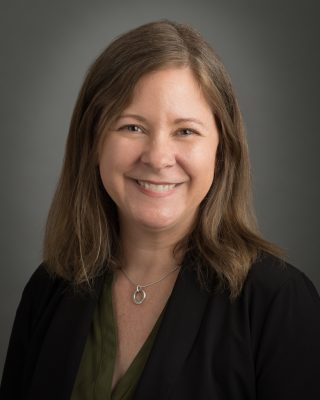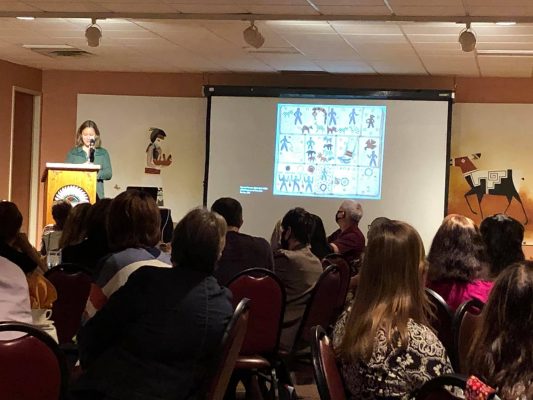Kauper shares insights on creativity
Cornell College Associate Dean of the College and Associate Professor of Education Kathryn Kauper spends a lot of time thinking about and studying creativity.

What is the source of creativity and who gets to be creative?
As a professor who teaches future educators, it’s an important topic.
Kauper shared her thoughts this past fall as she gave the presidential address to educators and curriculum scholars at the annual meeting of the American Association for Teaching and Curriculum. Her speech is now published in the association’s peer-reviewed journal, Curriculum and Teaching Dialogue.
“Since antiquity, people have thought of creativity as some external force or muse that touches us and gives us this beautiful way of thinking, or this beautiful way of doing; it’s an external force that comes to us,” Kauper said. “But I don’t take that view. I think that our muse is within ourselves. I think that it’s the social conditions in which we live that allow for those creative opportunities to be manifest.”
She says society has stifled forms of creativity over time, and she often thinks about how institutional racism and lack of equity impede the creative process.
“Creativity is inherently political, understanding our social surroundings puts us in a better position to be creative,” Kauper said.

And she’s not just talking about creativity in the world of art. For her, creativity goes well beyond just the imagination.
“Creativity outside of the world of art needs to speak to a problem,” Kauper said. “It needs to speak to a response to a social condition or a situation that could be made better. It’s a little bit of innovation, it’s a little bit of inspiration, it’s a little bit of problem-solving, and it’s all of those things combined.”
Kauper says creative people need to have time to think, reflect, and practice. That’s something she is working to build into Cornell’s new Ingenuity Curriculum through purposefully incorporating reflective practices and writings for students, especially during the first and second-year seminars. She knows this will give students more tools to be creative.
“If we are paying attention to the social conditions of our people that we interact with, if we are paying attention to the little voices within the larger story of our time, then we are going to be better positioned to see the problems and find solutions to the problems–finding solutions to the problems is where the creative work is.”
As for her students– the future teachers–they can help others find their creativity by recognizing the importance of allowing space in lesson plans for students to wonder–moments to let the information sink in.
“We have the responsibility to cultivate in our teaching and learning communities, truly creative problem-solving skills that combat the problems of our time,” Kauper said in her speech.
Kauper has been teaching at Cornell College since 2010 and teaches courses such as Writing for Civic Engagement, Education Policy and Practice, First-Year Seminar, and History of American Education. She has played a big part in rolling out Cornell’s new Ingenuity Curriculum which includes a focus on Citizenship in Practice during the Second-Year Seminar and many hands-on learning experiences and reflective writing.



